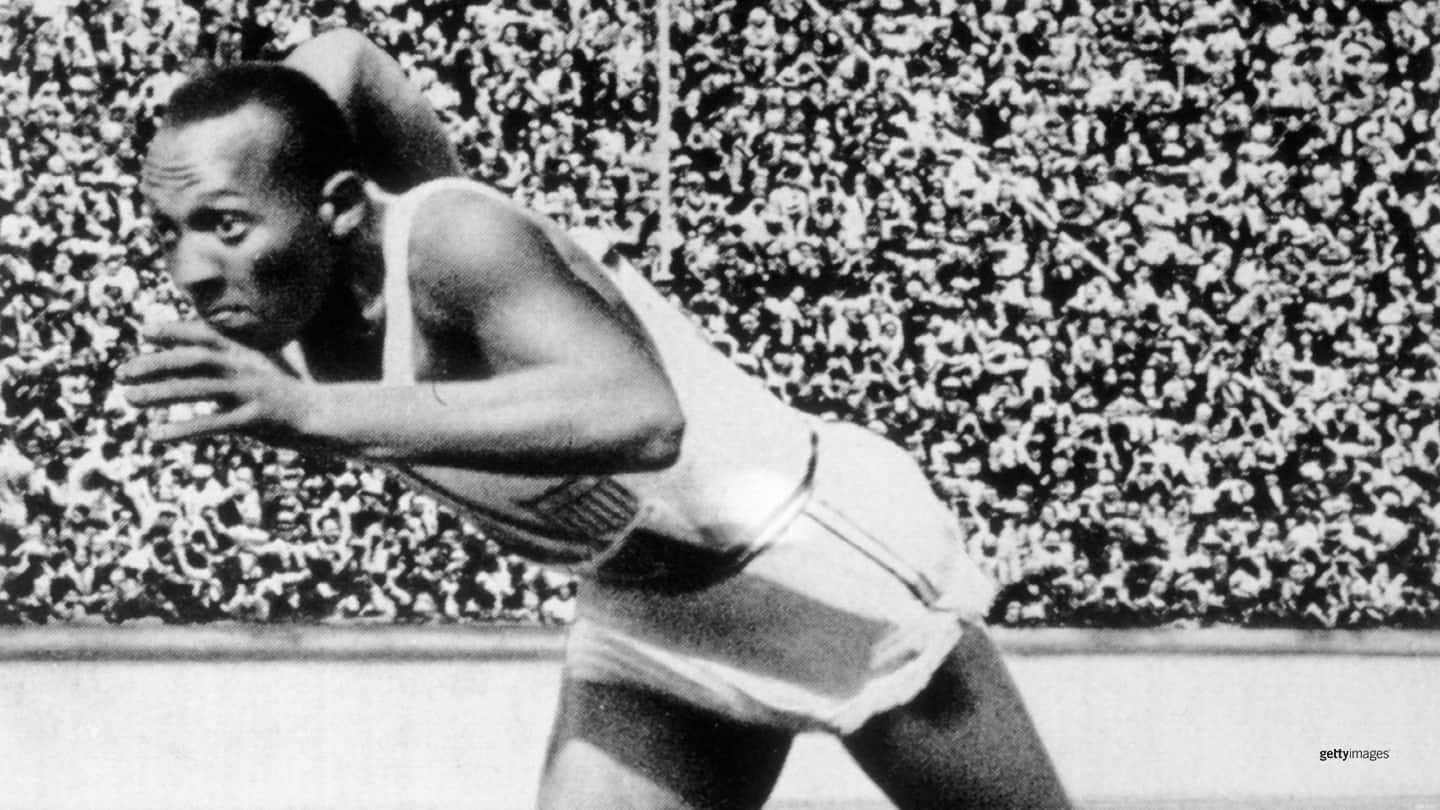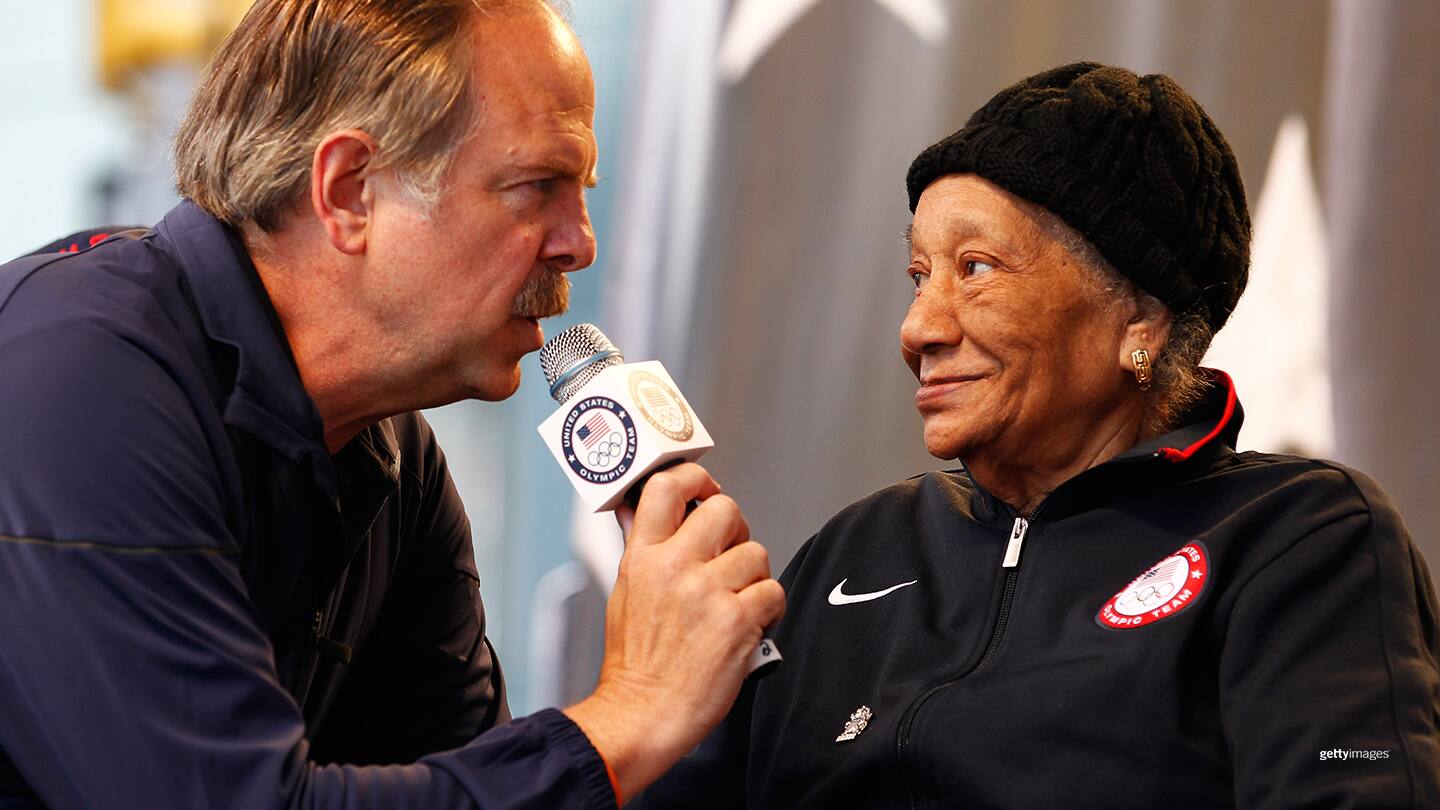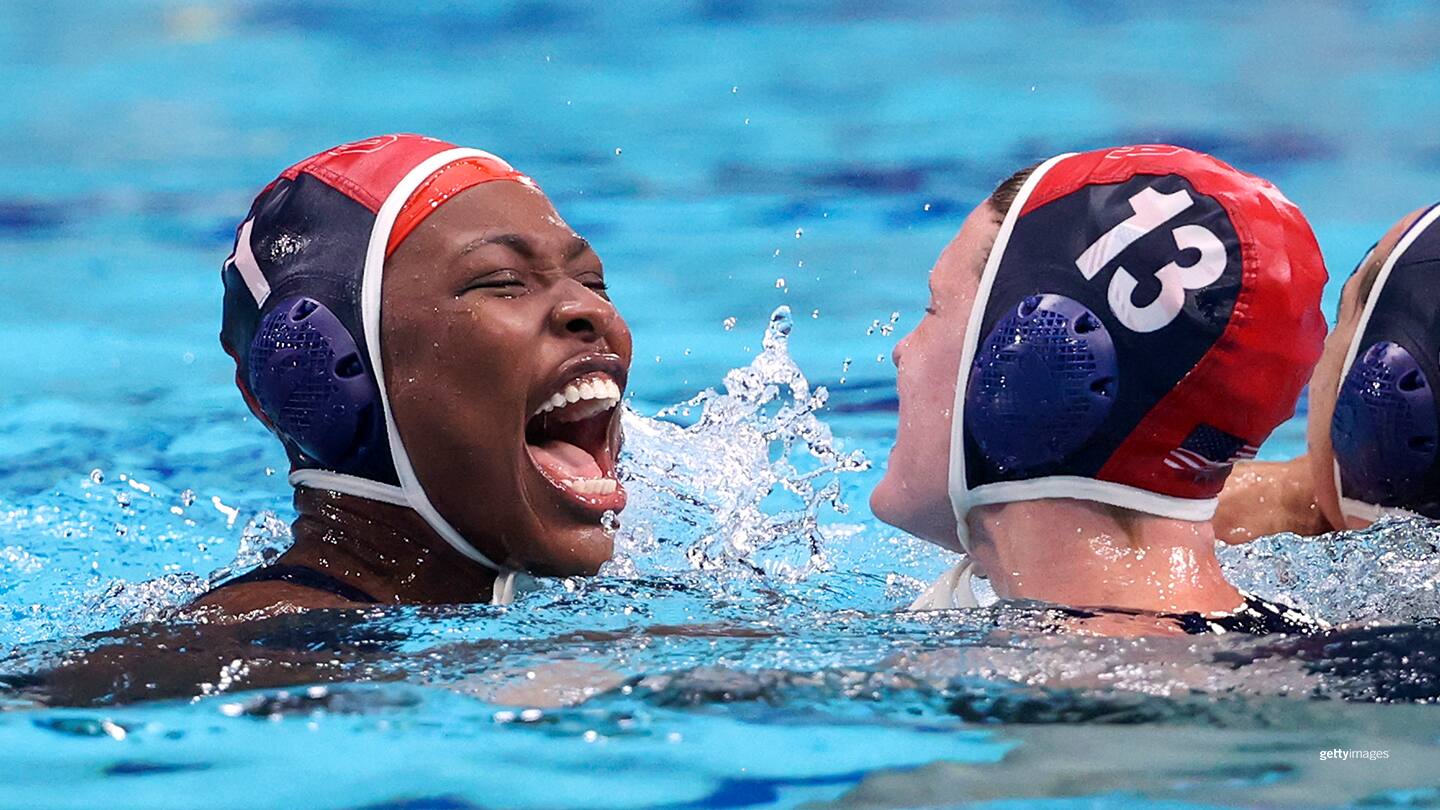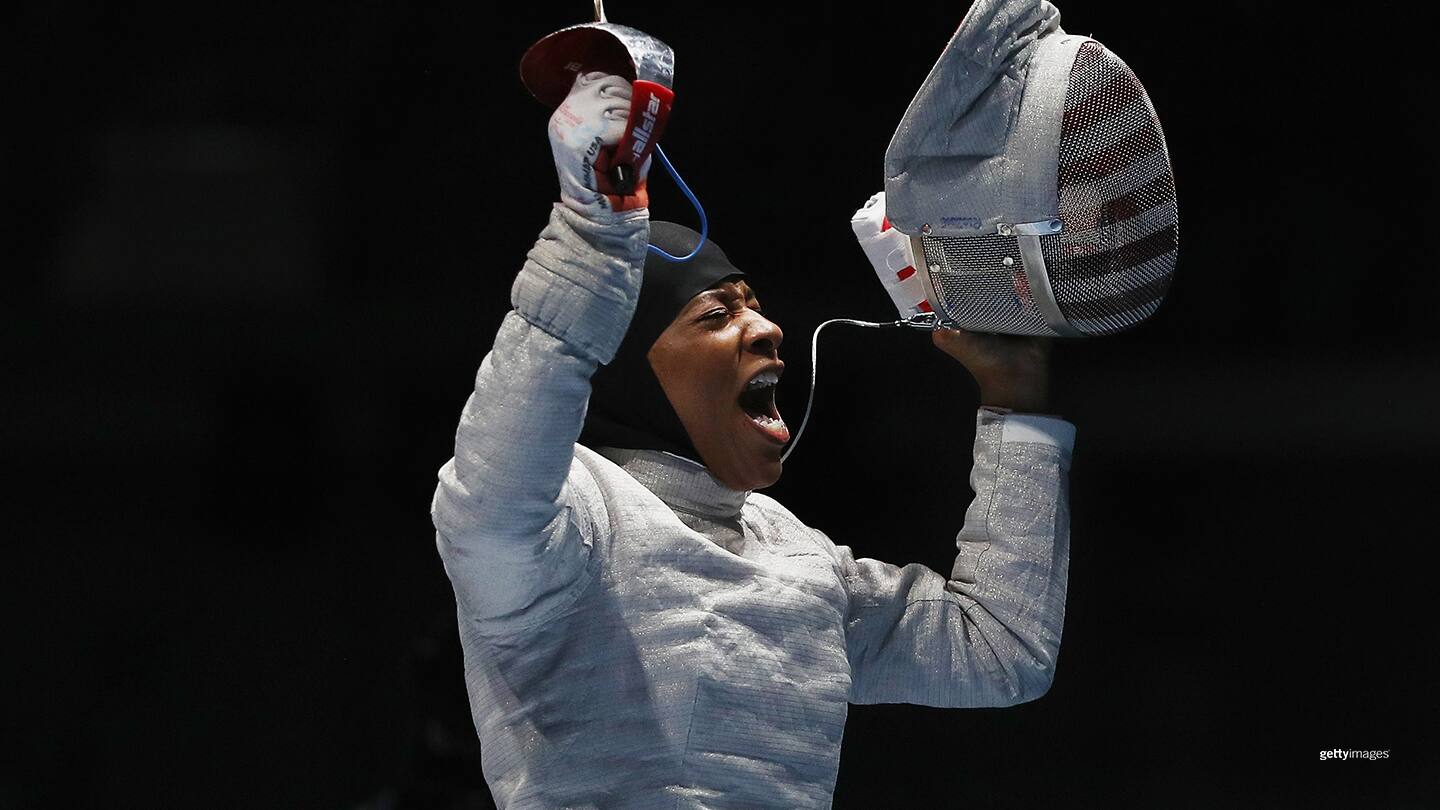
A Look At Some Of The History-Making Black Athletes Of Team USA
by Karen Price
From pushing their sports forward to becoming the first Black Americans to medal to becoming inspirations to young athletes dreaming of their own Olympic journeys, here’s a look at a handful of history-makers:

Jesse Owens competes in the men's 200-meter at the Olympic Games Berlin 1936 in Berlin.
Owens was already a track and field star going into the 1936 Olympics, having set three world records and tied another in 45 minutes at the Big Ten Championships the year before. But the son of an Alabama sharecropper and grandson of slaves put his superior skill and talent on display for all the world in Berlin when he won four track and field gold medals, setting two world records in the process.
Although Black athletes including Owens and Carl Lewis would go on to become some of track and field’s most decorated athletes, Taylor came before them all as the first Black athlete to win an Olympic gold medal. A track star at the University of Pennsylvania, Taylor helped the U.S. team win the 4x400-meter relay at the 1908 Games in London.

Alice Coachman speaks to sports broadcaster Jon Naber during the Team USA Road to London 100 Days Out Celebration in Times Square on April 18, 2012 in New York City.
Coachman was a high jump star as a high schooler in the 1930s and ’40s, despite her ability to train and compete being deeply hampered by Jim Crow laws in her home state, Georgia. She didn’t make her Olympic debut until 1948 because of World War II, but there she became the first Black woman to win an Olympic gold medal in any sport and set an Olympic record in the high jump at the age of 25.
Thomas became the first Black American woman to medal at the Winter Olympics when she won bronze in 1988. Before that, she became the first Black woman to win the U.S. national title as well as the world title in figure skating, all while attending Stanford University as a pre-med student. She later won bronze at the 1988 world championships before retiring from amateur skating.

Bonnie St. John attends the the Women's Sports Foundation's 38th Annual Salute To Women in Sports Awards Gala on Oct. 18, 2017 in New York City.
Before anyone else, there was Bonnie St. John. St. John had her right leg amputated below the knee at the age of 5 and went on to represent the U.S. at the 1984 Paralympic Winter Games in Innsbruck, Austria. There she became the first Black American to medal in either the Olympic or the Paralympic Winter Games when she won bronze in the slalom. St. John added another bronze in giant slalom and a silver in overall performance — and her success wasn’t limited to the slopes. St. John’s credits also include graduating from Harvard University, becoming a Rhodes Scholar, working in the White House as an economic official and then starting her own business.
Twenty years ago, Flowers inspired the world when she became the first Black athlete to win Olympic gold in a winter sport. A standout sprinter and long jumper, Flowers twice competed at the Olympic trials for track and field, but twice fell short. After that second attempt in 2000, she turned her attention to bobsled, where a two-woman event was making its Olympic debut in 2002. Along with pilot Jill Bakken, Flowers won gold in Salt Lake City to make history in more ways than one.

Simone Biles poses with her bronze medal during the women's balance beam medal ceremony Olympic Games Tokyo 2020 on Aug. 3, 2021 in Tokyo.
With her bronze medal on the balance beam last summer in Tokyo, Biles claimed her 32nd Olympic or world championships medal, tying the record for the most all time. Her four-gold performance at the Rio Games in 2016 was one of the most dominant in the sport’s Olympic history. But Biles’ ability to inspire others went well beyond her otherworldly feats of athleticism when she paused her second Olympic competition in Tokyo citing mental health struggles. Her willingness to speak out on the topic has had a profound impact throughout the world of sports and beyond.
Williams established herself as a track and field star over three Olympics in which she won gold in the 4x100-meter in 2012 and silver in the 100-meter in 2004. In 2014, she turned her attention to bobsled. There she partnered with Elana Meyers Taylor to win silver in the two-woman bobsled, becoming the first American woman to medal in both the Summer and Winter Olympics.

Ashleigh Johnson celebrate the win during the women's gold medal match against Spain Tokyo 2020 Olympic Games Tokyo 2020 on Aug. 7, 2021 in Tokyo.
At the 2016 Rio Games, Johnson, a goalkeeper, became the first Black woman to compete for Team USA in water polo. The team made history that year by becoming the first to win back-to-back gold medals in women’s water polo, and with Johnson again in net the U.S. won a third straight in Tokyo. The Princeton grad has often spoken about the opportunity she sees to be a role model for other young Black athletes.
Manuel cemented her place in the history books by becoming the first Black woman to win an individual Olympic gold medal in swimming when she won the 100-meter freestyle in Rio in 2016. Her performance at those Games also included a gold medal in the 4x100-meter medley, plus two silver medals. In the years since she has continued to thrive as a sprinter, and in 2021 she returned to her second Olympics in Tokyo and won a bronze medal.

Ibtihaj Muhammad celebrates victory over Olena Kravatska of Ukraine during the women's individual sabre during the Olympic Games Rio 2016 on Aug. 8, 2016 in Rio de Janeiro.
The saber fencer won a bronze medal at the 2016 Olympics and also made history by becoming the first American Muslim woman to wear a hijab while competing.
Nieves made history as a member of the U.S. sitting volleyball team that won a gold medal at the 2016 Paralympic Games in Rio. It was the first time the U.S. women won gold in the sport. Nieves was also on the 2019 team that went undefeated with 25 wins. Born with one hand, Nieves founded Limitless People Inc., a nonprofit that aims to increase opportunities for all people in sitting and standing volleyball. Nieves was named to her second Paralympic team this past summer but was replaced just before the team departed for Tokyo for health reasons.

Erin Jackson celebrates her gold medal during the women's 500-meter medal ceremony at the Olympic Winter Games Beijing 2022 on Feb. 14, 2022 in Beijing.
An accomplished inline skater, Jackson had only been competing on ice for four months when she became the first Black woman to make the U.S. Olympic long track speedskating team in 2018. This past fall, she became the first Black woman to win a world cup race, beating the 2018 Olympic champion in the 500-meter final. Then on Feb. 13, 2022 she made history yet again, becoming the first Black woman to medal individually in speedskating when she won the gold in the 500-meter.
The Ghana-born Biney garnered a lot of attention in 2018 when she became not only the second African-born athlete to represent the U.S. at the Winter Olympics but also the youngest skater and first Black woman ever to make the U.S. Olympic short track speedskating team. Having recently turned 22 and now competing in her second Olympics, Biney and Jackson both have spoken about using their platforms and visibility in Beijing to inspire other young Black athletes to try sports in which they don’t often see themselves represented.
Although Willie O’Ree broke the NHL color barrier playing with the Boston Bruins in 1958, it wasn’t until 2018 that a Black player was named to a Team USA Olympic hockey roster. Greenway, who was a forward for Boston University and a second-round draft pick of the Minnesota Wild, became the first Black hockey player to represent the U.S at the Winter Olympics. At 20 years old, he was one of four college hockey players on the team, and at the time only 13 of the 1,690 Division I college hockey players identified themselves as Black.
Karen Price is a reporter from Pittsburgh who has covered Olympic and Paralympic sports for various publications. She is a freelance contributor to TeamUSA.org on behalf of Red Line Editorial, Inc.